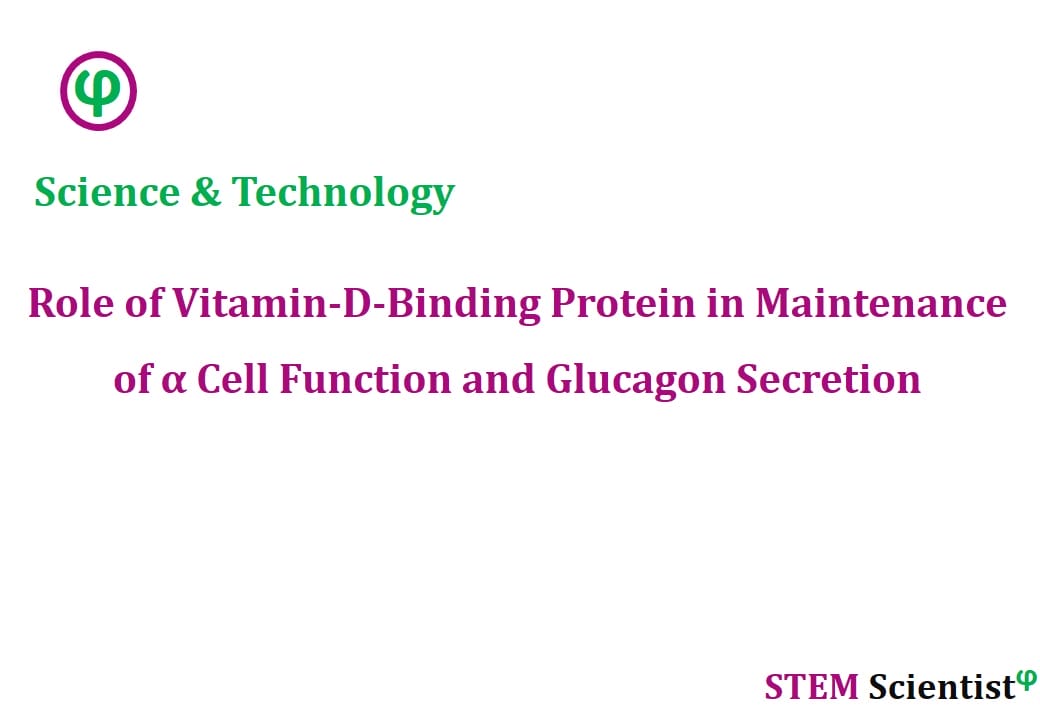
The following study was conducted by Scientists from Institute of Metabolism and Systems Research (IMSR), University of Birmingham, Birmingham, UK; Centre for Endocrinology, Diabetes and Metabolism, Birmingham Health Partners, Birmingham, UK; Centre of Membrane Proteins and Receptors (COMPARE), University of Birmingham and University of Nottingham, Midlands, UK; Oxford Centre for Diabetes, Endocrinology and Metabolism, Radcliffe Department of Medicine, University of Oxford, Oxford, UK; Department of Pharmacology and Alberta Diabetes Institute, University of Alberta, Edmonton, Canada; Institute of Biomedical and Clinical Science, University of Exeter Medical School, Exeter, UK. Study is published in in Cell Reports Journal – Cell Press Publishing as detailed below.
Cell Reports Journal – Cell Press Publishing (2020)
Vitamin-D-Binding Protein Contributes to the Maintenance of α Cell Function and Glucagon Secretion
Highlights
- Vitamin-D-binding protein (DBP) is highly expressed in pancreatic α cells
- Glucagon secretion and insulin tolerance are altered in mice lacking DBP
- DBP-null α cells possess an abnormal actin cytoskeleton and are dysfunctional
- DBP levels are decreased in α cells of donors with late-onset type 1 diabetes
Summary
Vitamin-D-binding protein (DBP) or group-specific component of serum (GC-globulin) carries vitamin D metabolites from the circulation to target tissues. DBP is highly localized to the liver and pancreatic α cells. Although DBP serum levels, gene polymorphisms, and autoantigens have all been associated with diabetes risk, the underlying mechanisms remain unknown. Here, we show that DBP regulates α cell morphology, α cell function, and glucagon secretion. Deletion of DBP leads to smaller and hyperplastic α cells, altered Na+ channel conductance, impaired α cell activation by low glucose, and reduced rates of glucagon secretion both in vivo and in vitro. Mechanistically, this involves reversible changes in islet microfilament abundance and density, as well as changes in glucagon granule distribution. Defects are also seen in β cell and δ cell function. Immunostaining of human pancreata reveals generalized loss of DBP expression as a feature of late-onset and long-standing, but not early-onset, type 1 diabetes. Thus, DBP regulates α cell phenotype, with implications for diabetes pathogenesis.
Source:
Cell Reports Journal – Cell Press Publishing
URL: https://www.cell.com/cell-reports/fulltext/S2211-1247(20)30741-5
Citation:
Viloria, K., D. Nasteska, et al. (2020). “Vitamin-D-Binding Protein Contributes to the Maintenance of α Cell Function and Glucagon Secretion.” Cell Reports 31(11).


